SOUTH WEST GRADUATE PHOTOGRAPHY



Working from home was not the creative limitation any of us had in mind when the graduates of 2021 started their degree courses almost four years ago. There can be little doubt that for some this has left untold hurt leading to unrealised potential, but a few students have managed to channel their discomfort into astonishing work. In a non-pandemic year, these artists would have had an exhibition in London. However, for the second year in a row, their work is seen as a publication. This book shows the best photography from graduates based in the South West of England, with almost all citing lock-down a key actor in their work.
Specifying her home in the countryside as the inspiration for her outlook and practice, Victoria Stokes (BA(Hons) Photography, Falmouth University), spent her imposed stay at home testing alternate processes. Making use of seawater in her chemistry and lengthy exposures, Stokes has created a sepia-cyano language that wishes to encourage care for the natural environment.
Eveline Deveikaite (BA(Hons) Fashion Photography, Falmouth University) worked in her native Lithuania. Drawing on themes integral to her identity, the images consider woman as mother nature and motherland.
Thematically, hope and resilience sit central to Evie Milsom’s, (BA(Hons) Photography, Arts University Bournemouth) selfportraits. Concentrating on what supports her sense of wellbeing, Milson takes a unique look at her experience of wild swimming.
Lockdown again informs life lived in a fish-bowl, as Gemma Worrall (BA(Hons) Fashion Photography, Falmouth University) explores in film ideas of womanhood mediated by an internalised, external gaze.
From Cornwall, Fran Rowse (BA(Hons) Fashion Photography, Falmouth University) has made a series of participatory portraits. Working transparently with the girls or ‘Maids’, each agreed to enact visual tropes to highlight the reality of their left-behind lives in a county of second homes.
Jake Varker (BA(Hons) Photography, University of Plymouth), also from Cornwall, takes what he names a “lyrical” documentary approach to his conflicted feelings about his home town, St Austell.
In a critique of consumerism, Julia Wrzesinska (BA(Hons) Photography, Falmouth University) fools us with her fake fashion campaign, a metaphor for her disregarded generation.
A mature student, Eve Thomas’ (BA (Hons) Creative Arts Practice, Bath Spa) work draws on past trauma. Disparate images explore facets of her experience as a form of therapy as she attempts to “make peace” with her past.
Each project takes an assured artistic stance founded in rigorous undergraduate study. This work is not only a celebration of these students, but also a tribute to the staff that have supported this crop of graduates. It is heartening that there are fledgling practitioners who have managed to navigate the last few years so successfully.
Elizabeth Orcutt Photographer and Lecturer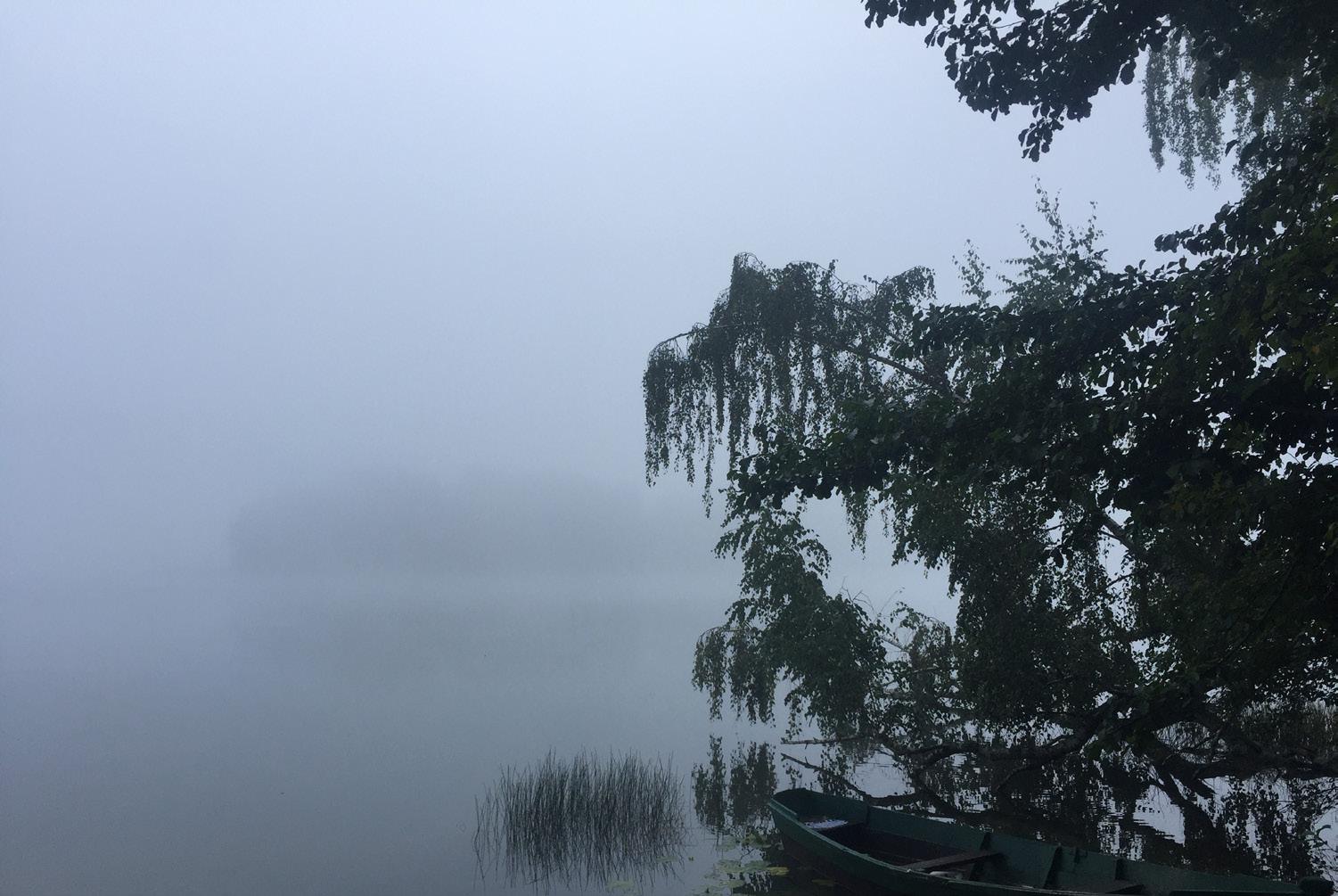
In this presented series, the work explores my native country - Lithuania. Through the devices of non-linear narrative constructions, the series brings new light to the relationship between the poetic, the photographic, and the remembered. The nation’s histories, art movements and personal archives make conceptual connections between the portrayal of females through the obvious and the unconscious at the level of the liminal. A personal dream on the plane about the motherland. The feeling of longing. The memory of place. The land you cannot reach.
Rather than being an exactitude, through a harnessing of different photographic mediums and curatorial practice - from the digital to DV camcorder, the family album, the artist’s world and the Lithuanian landscape in observation - gives new meanings to these disparate motifs. Mythology and customs, offer new meanings and understanding to ourselves, our identities and the soil we exist on. This project becomes fictional documentation of my sense of longing, of a place that only exists in my imagination.
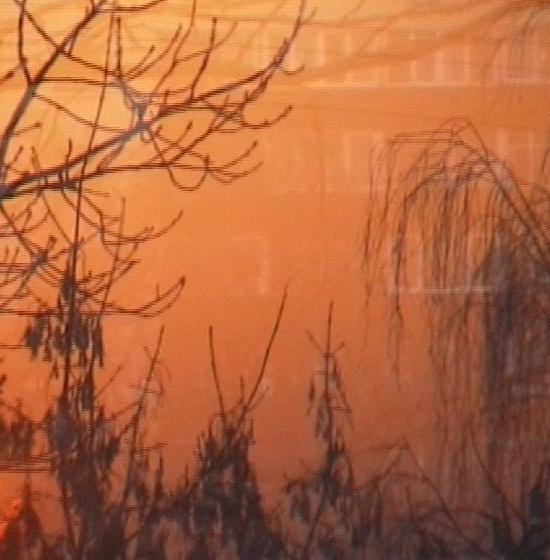



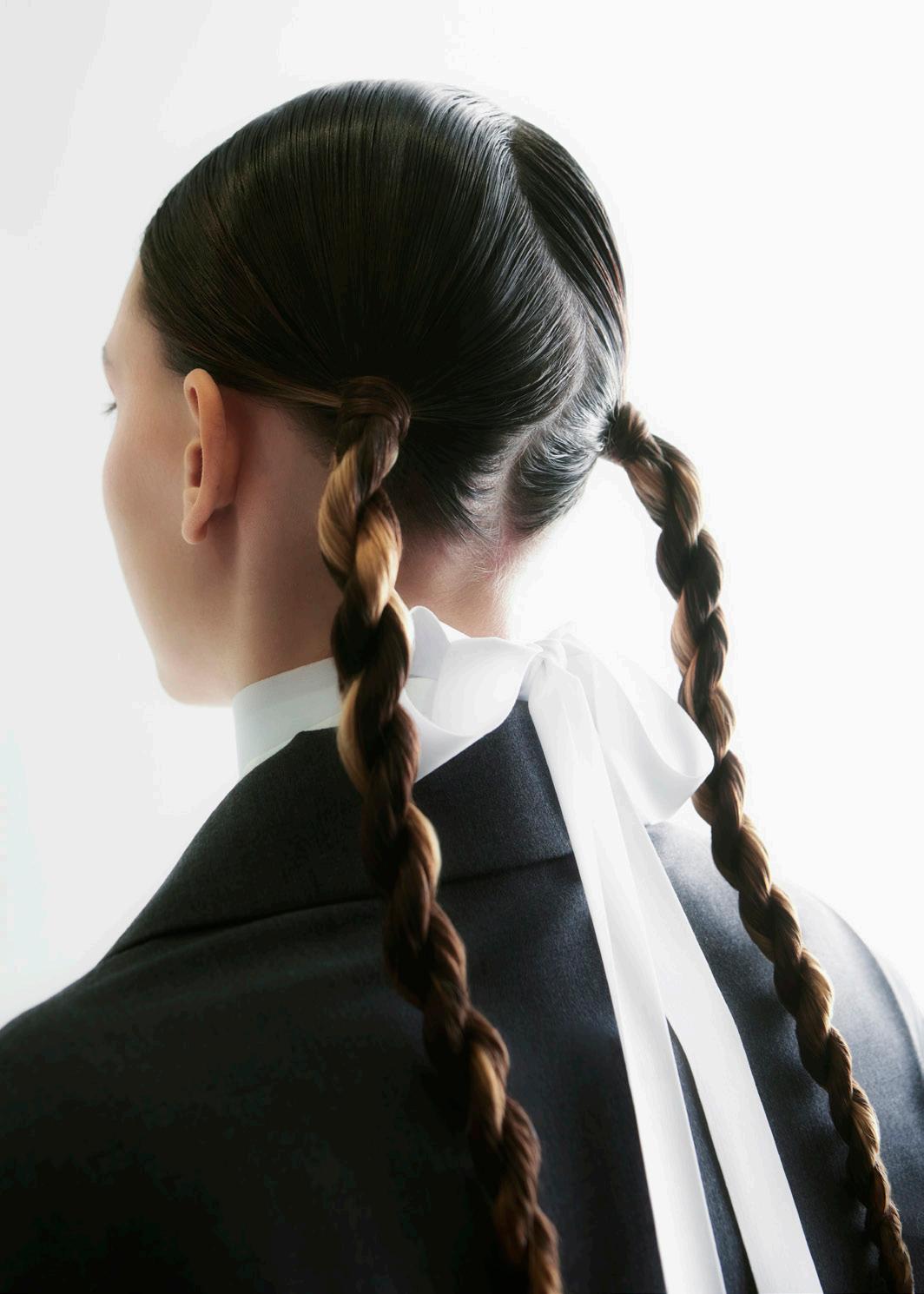

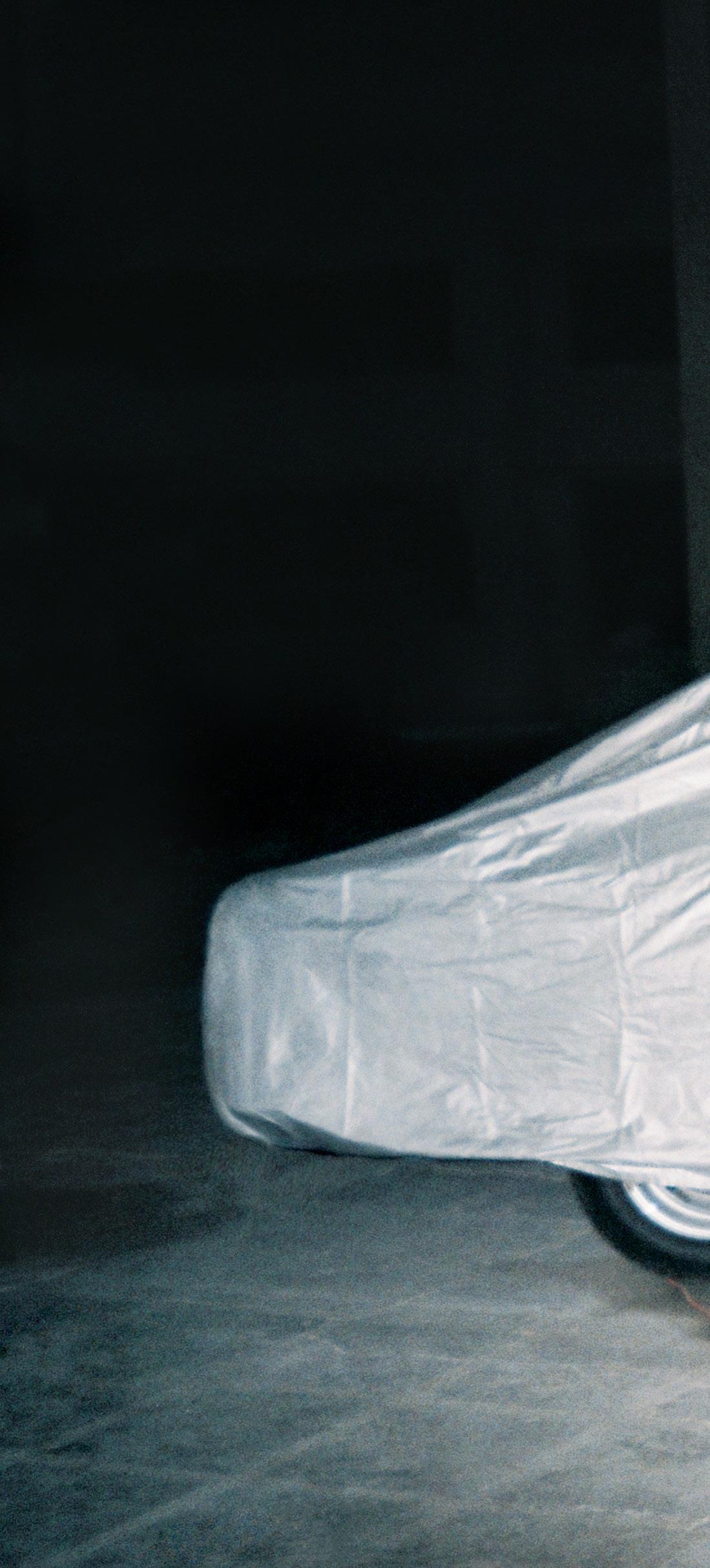

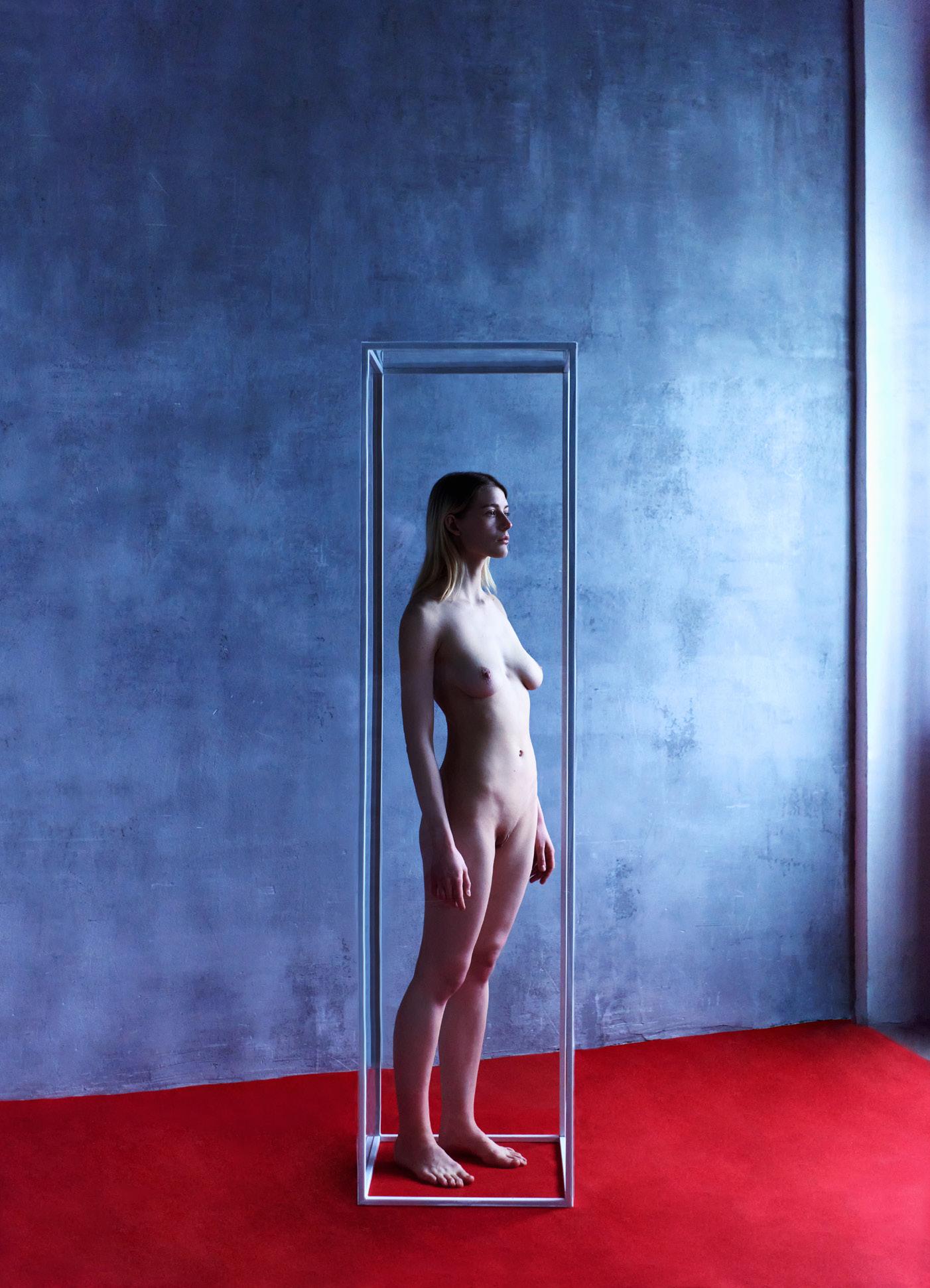


Lobster pink skin, cheeks tingling and a serene mental state.
‘Biophilia’ - ‘an innate and genetically determined affinity of human beings with the natural world.’ This series of work follows my journey of sea swimming in coastal environments around the UK. There I document myself within the landscape, whether it’s after the swim or just before the plunge. Surrounding myself within the wilderness enables me to thrive and appreciate the natural world, particularly when the human relationship with it is so troubled. With the sun hitting the water’s surface, the light creating tones of blue and the sounds of the sea waves in the shallows - being within the water without disturbing the flora and fauna brings such happiness.







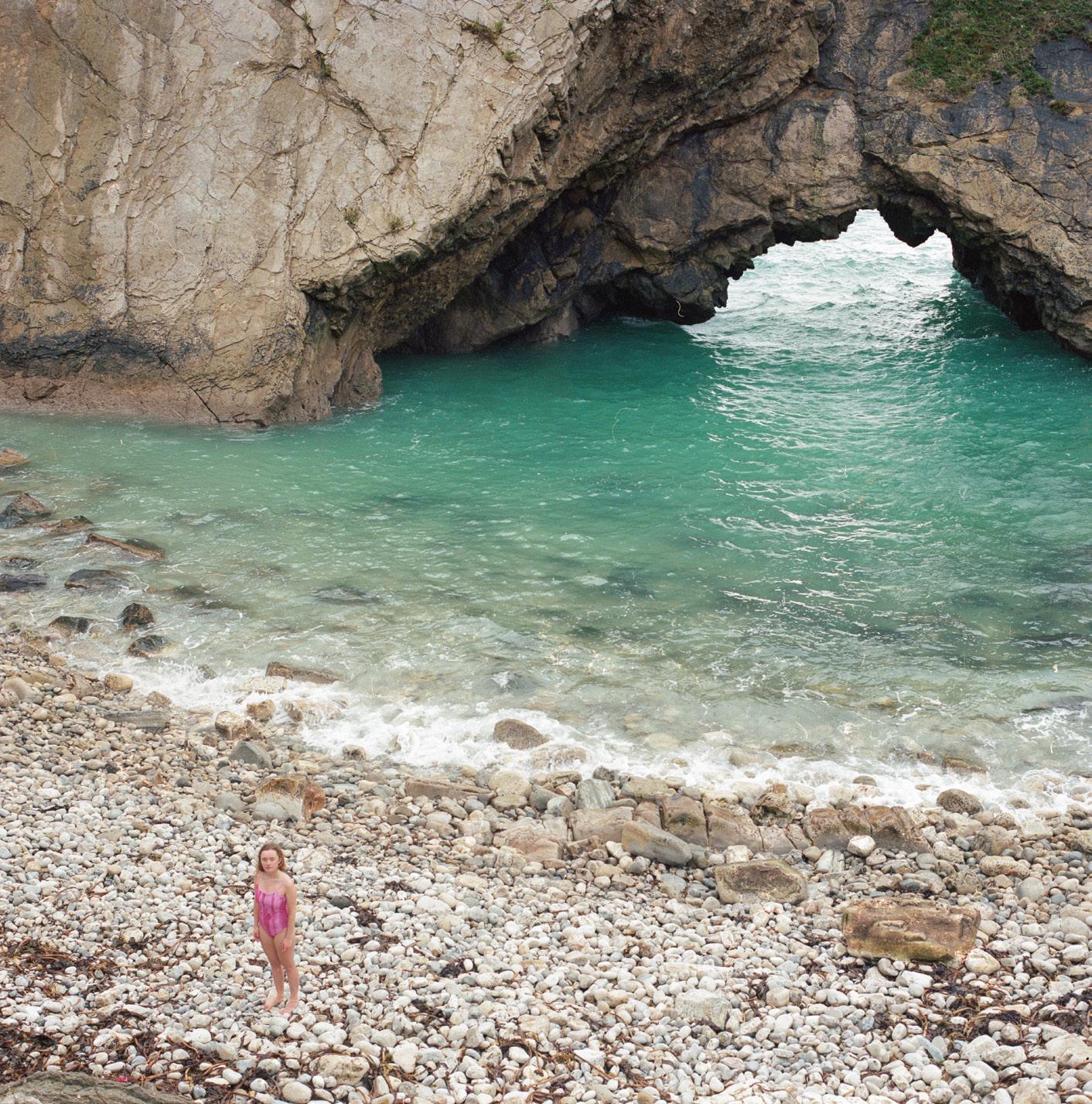


‘Maids’ highlights the hidden world of poverty and girlhood in Cornwall. This project is a photographic book showing the real-life problems of poverty, lack of opportunity, and localised suppression of women in rural communities. Fran introduces styling, fashion, casting and photography to collaborate with the young women, discovering their old and new identities. This work fragments ‘Cornwall’ and re-builds it in a way that provides women with a sense of belonging, finding comfort in their refound Cornish heritage. Juxtaposing modern day Cornish maids against the stark post-industrial background of Cornwall to offer a perspective that is so rarely seen but is very much present in the reality of these young girls’ lives.
Within this project everyone photographed are all women from across the South West that wanted to join Fran on the mission of empowering fellow Cornish maids, learning about their heritage to find strength in their roots and in one another. The archival work within the book was acquired from Kresen Kernow, the Cornish Archival Institute. The series illuminates new collectives and communities. In bringing these traditional and contemporary personal female stories to life the project aims to fill the void in female representation within Cornish cultures.

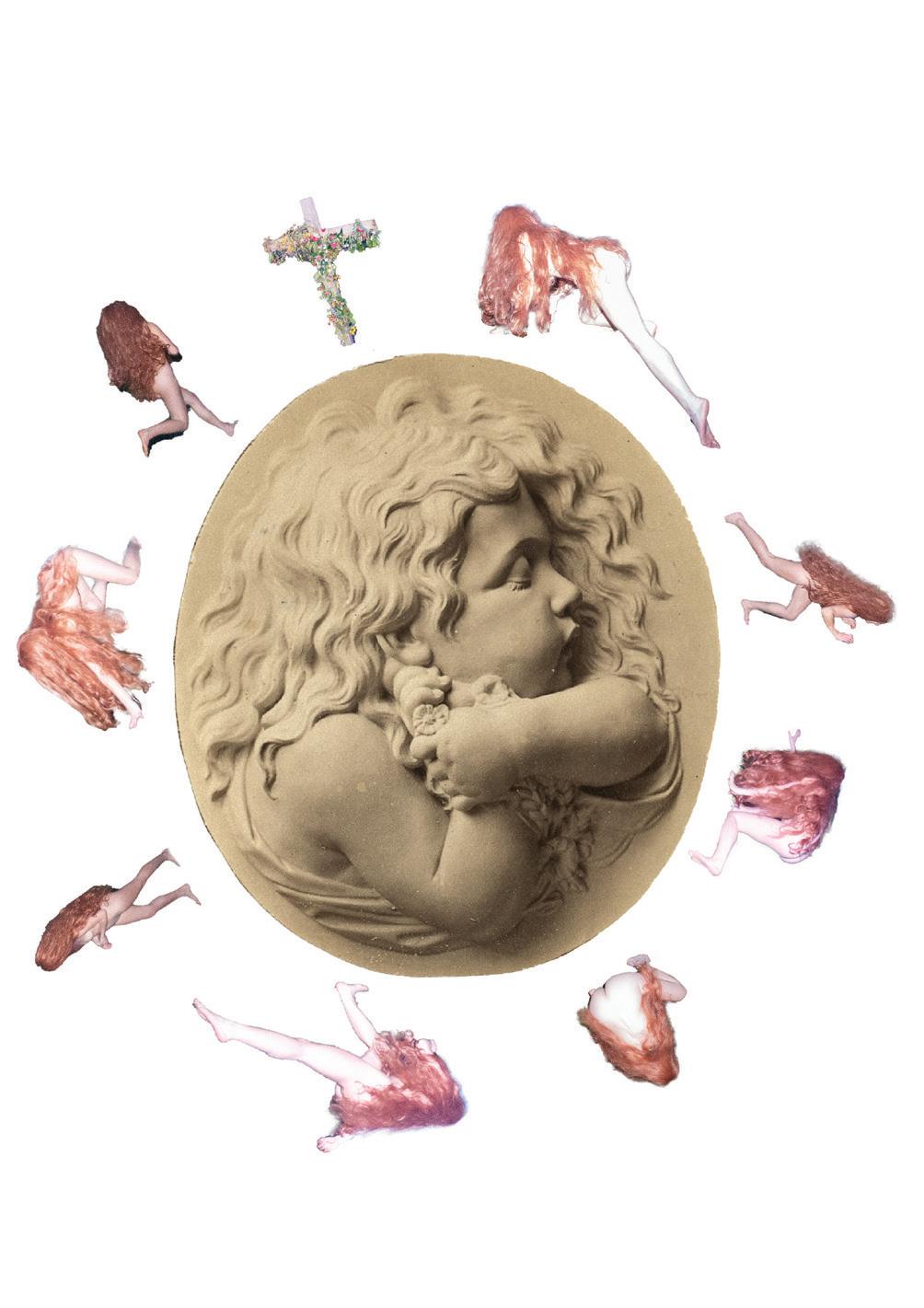
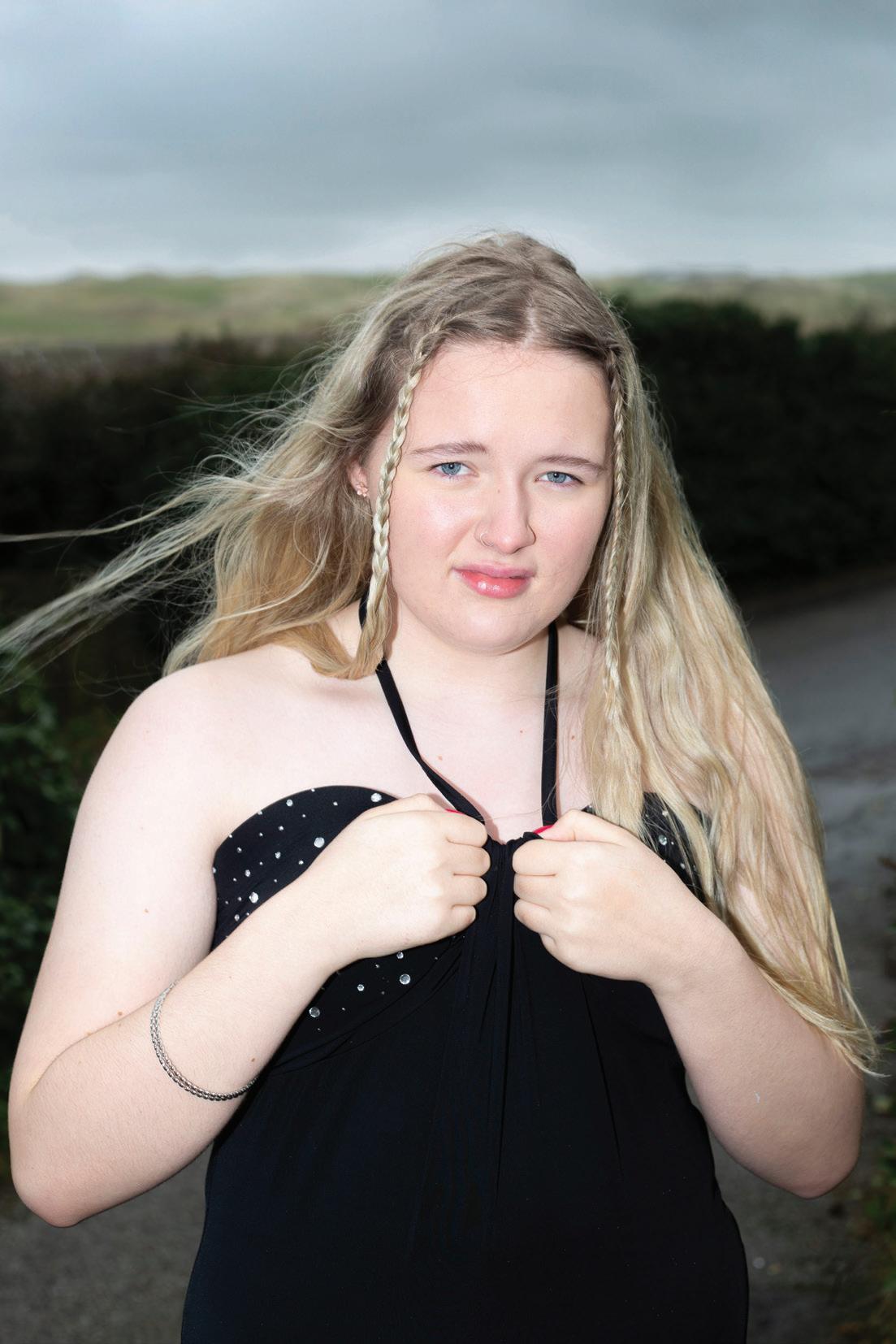







My experimentation with the cyano-lumen process and re-purposing of photographic waste acts as a metaphor to seek out alternative approaches for an eco-centric future. The process of creating each image, surrenders control to the environmental conditions present at the time of their creation, ensuring each one is unrepeatable. By combining processes from the time of the industrial revolution through to the modern day, along with mixing photographic chemicals using various pH’s of seawater, I examine the effects of changes to ocean chemistry over time.
As atmospheric CO2 increases, so too does the amount absorbed by our ocean, where the excess CO2 dissolves forming carbonic acid. Recent studies indicate that slight increases in acidity inhibit the growth of many marine organisms, due to the reduction of available carbonates needed for calcification. In addition their existing skeletons slowly dissolve. This will eventually contribute to a loss of biodiversity which could cascade through the marine food web, upon which millions of humans are reliant and entire economies are based.
Ocean acidity has increased by approximately 30%, since pre-industrial times. It is therefore my aim to raise awareness and reach audiences who can bring about change by reducing human CO2 emissions. The title ‘acidopHobe’ refers to the abundance of organisms reliant on a specific alkaline ocean environment, the health of which is integral to maintaining a balance that supports life on Earth.





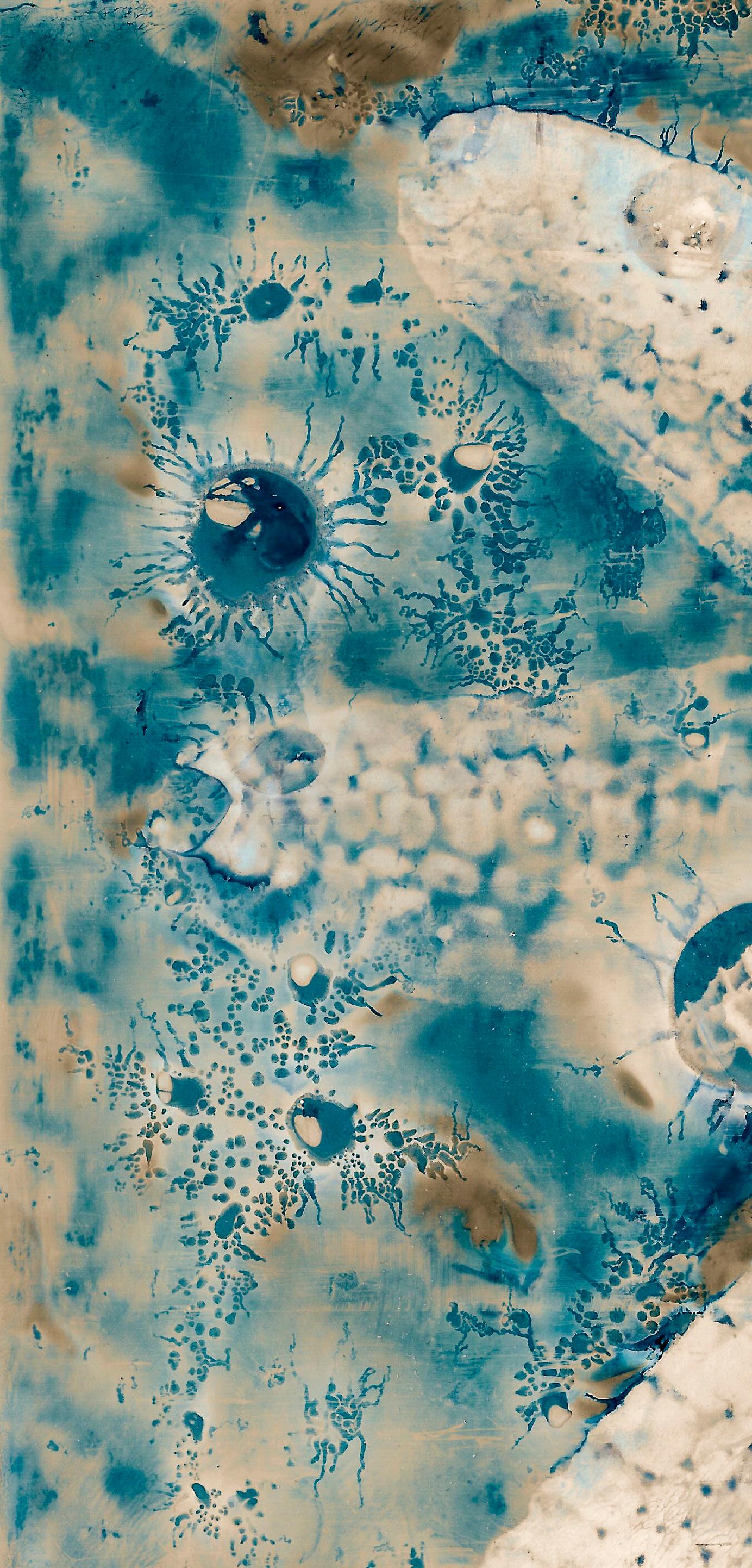
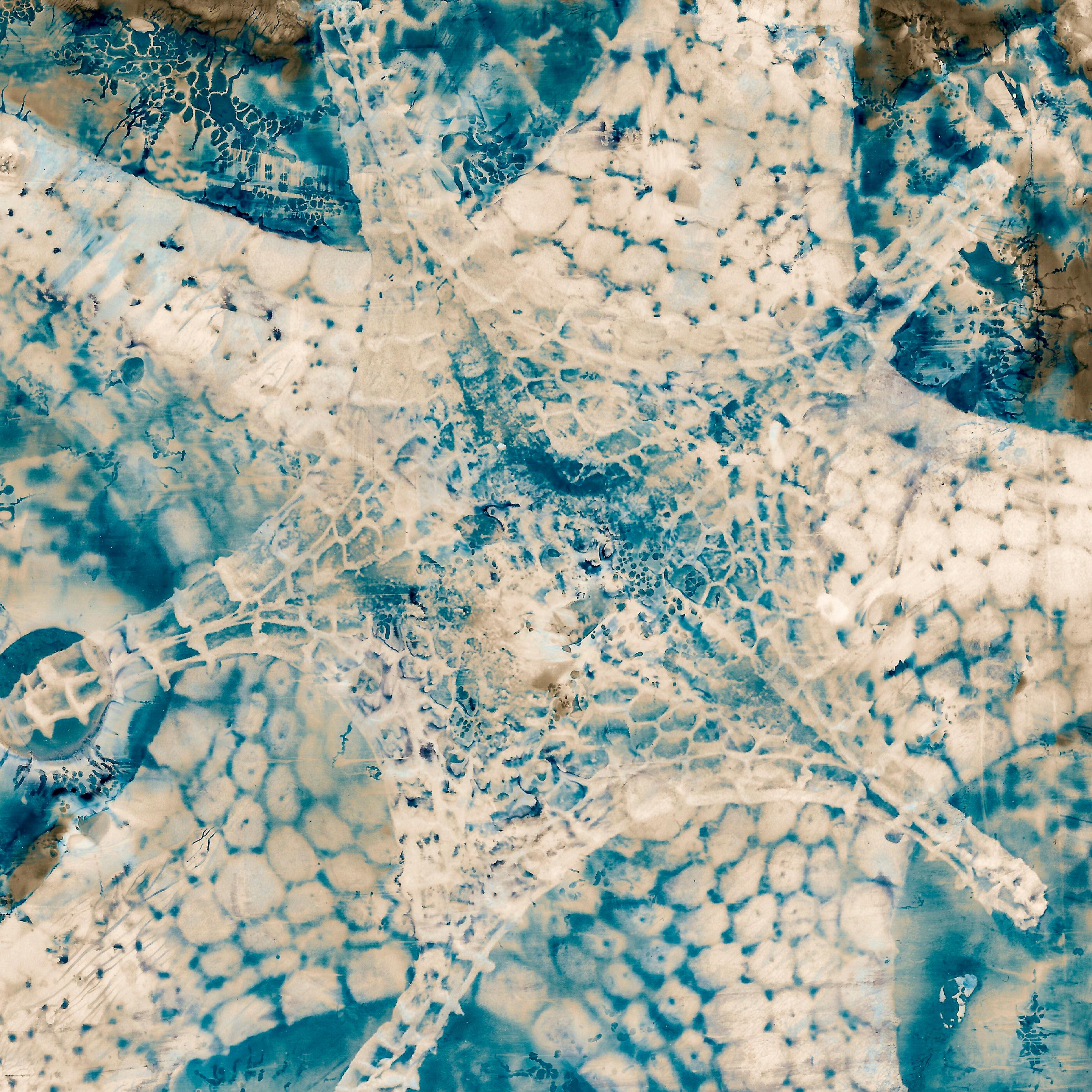


‘Mistaken for Strangers’ is a collection of photographs taken during the course of my undergraduate degree. The majority of these photographs are self-portraits, however the idea of ‘self’ is held in question as I interrogate the narratives and cultural influences that define me. For example, the stories I tell myself about who I think I am, the music I listen to, and the clothes that I wear. Some of the photographs evoke a clinical feeling of disconnect between the subject and the photographer, which are both versions of myself. When making this body of work I was concerned with the dichotomy between consciousness and unconsciousness, internal and external worlds, and identity and absence. I am also interested in the relationship between the image of the ‘self’ and the notion of ‘truth’ when concerned with the self, interrogating where there may be inconsistencies or façades.
My practice has been indebted to the work of photographer Jo Spence who pioneered photo therapy - the idea that self portraiture can be used as a tool to assist psychological recovery. In my studio shoots, I revisit times of trauma and re-enact past versions of myself in front of the camera. This is me forcing myself to look at and address areas where I feel conflict, pain and shame. This process can be triggering, but it helps me to access repressed trauma so that I can continue to resolve, make peace with the past and heal.

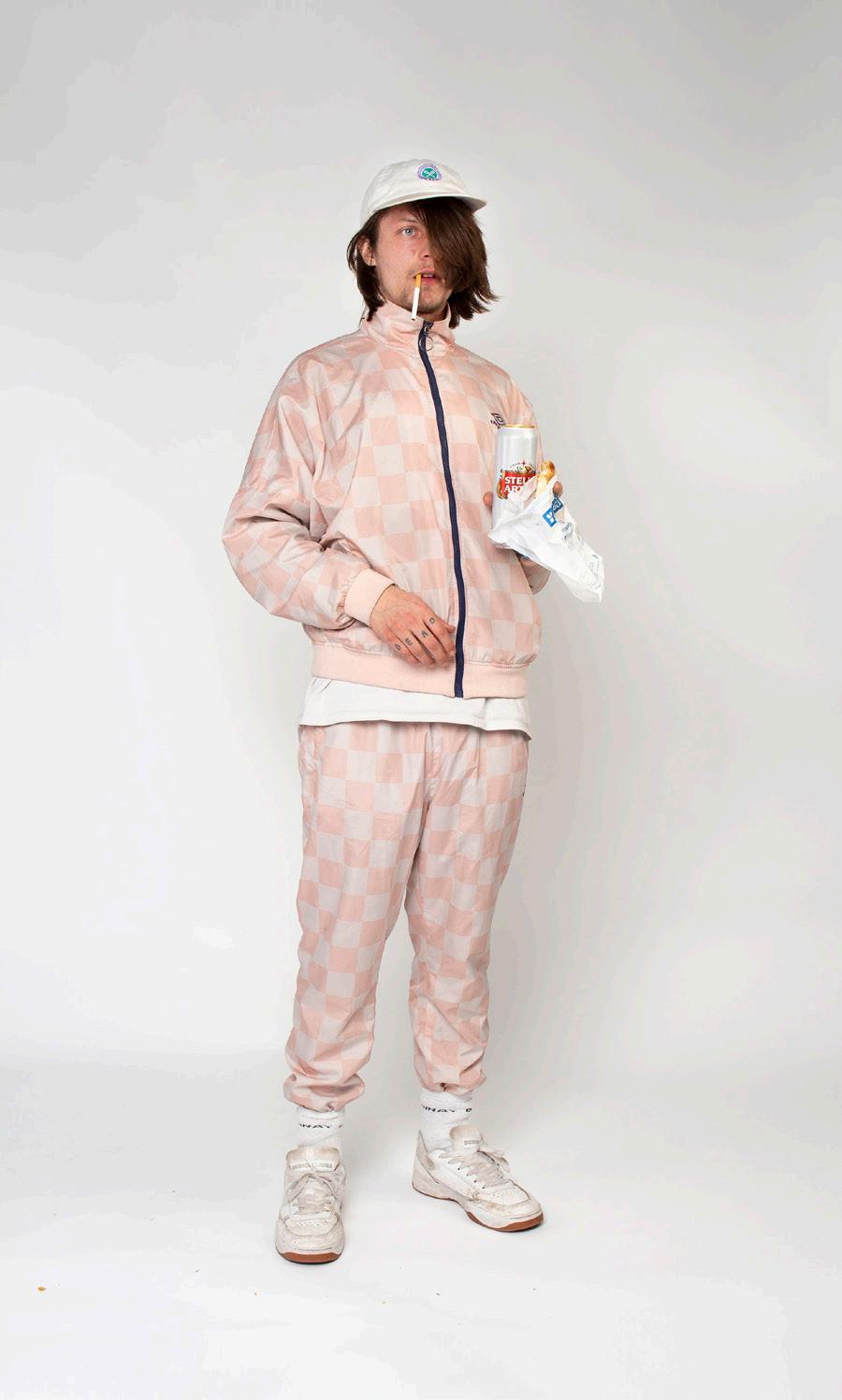



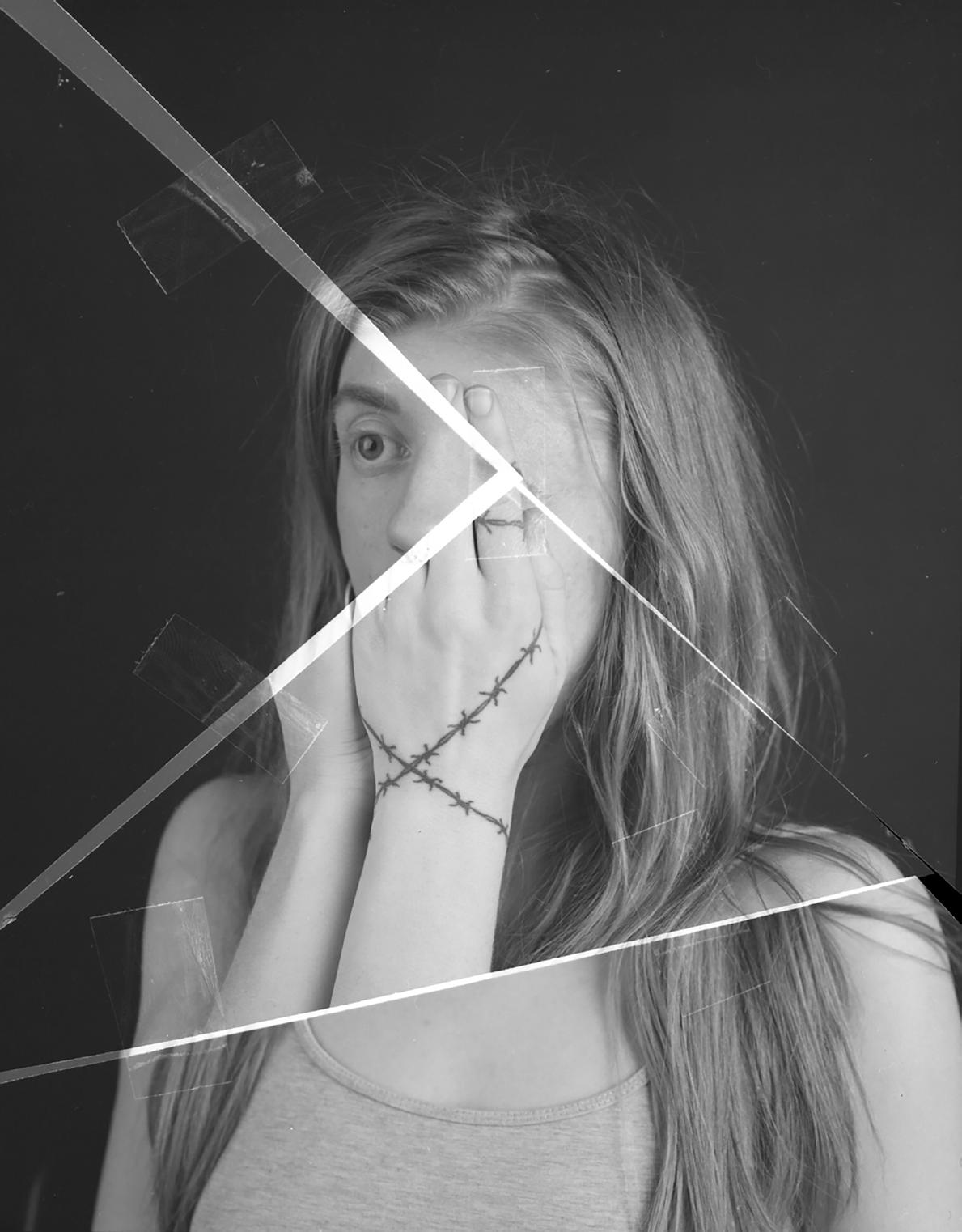



In the Shadow of the Rose’ is a lyrical response to the relationship I have with my home town, St. Austell; involving the lack of connection I have with it in association to my developing life away from my distant childhood memories. From my desire to create, I aim to use photography to recognise and acknowledge my complex feelings, as well as communicating St. Austell’s feelings of restlessness and hope, portrayed through the eyes of Cornish youth.


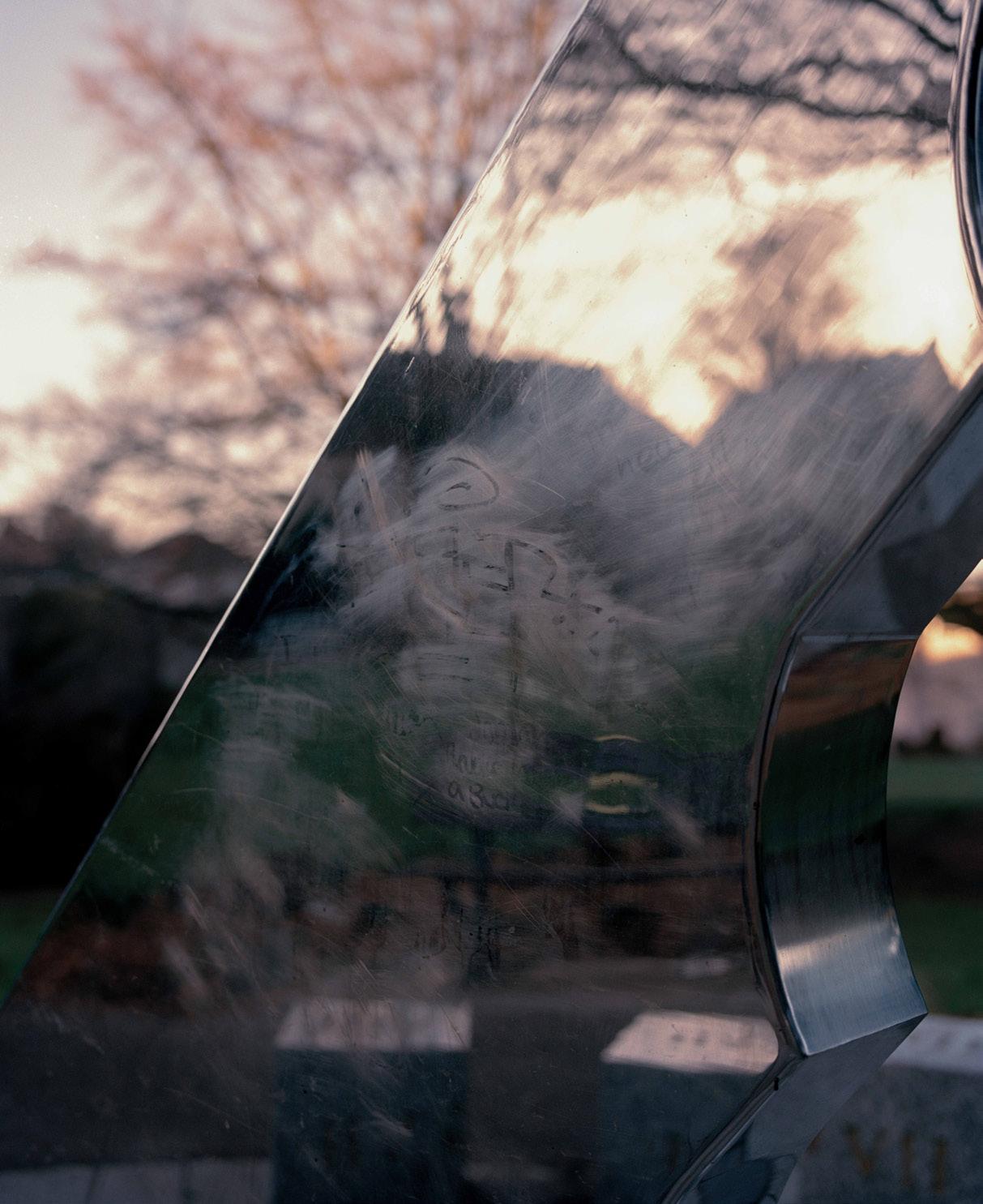


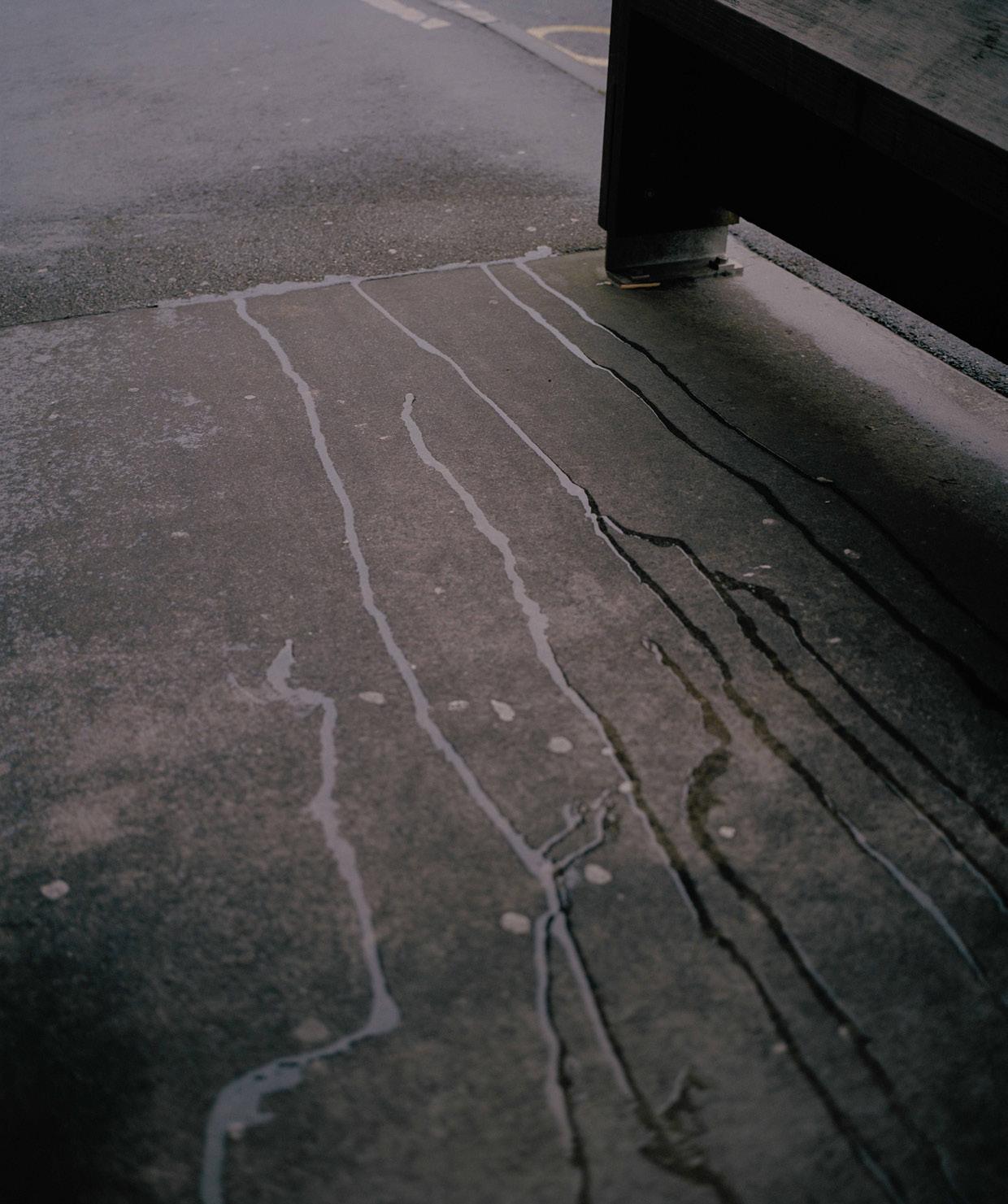





We view ourselves through the perception of others. This project is based on The Mirror Stage, a theory by Jacques Lacan that explores self-reflection and the idea that individuals can only see themselves through the gaze of the other. ‘The Performed Self’ is a film that weaves characters’ lived experiences, each illuminating a glimpse into their inner psyche for a nonexisting audience. The work is a metaphor for the artifice of ‘self’ and a critical reflection on the everyday performed experience.
Now as we enter the last phases of lockdown with the promise of new experiences and adventures this project becomes an even more powerful document to the challenges we have all faced in lockdown. Our domestic spaces have acted as miniature theatre sets, central to the realisation of our performed selves. Our interiors as backdrops for our Zoom meetings, Skype calls and Team classes locate us as actors in a role play of epic scale. And our windows to our lives become the space where dreams are acted out.
Within this series Gemma took on many multifaceted roles including; art director, stylist, location scout, producer, choreographer, film director, model caster, script writer, set designer and general problem solver extraordinaire. The project has tested the artist’s own powers of self-perception taking her into new territories of exploration.

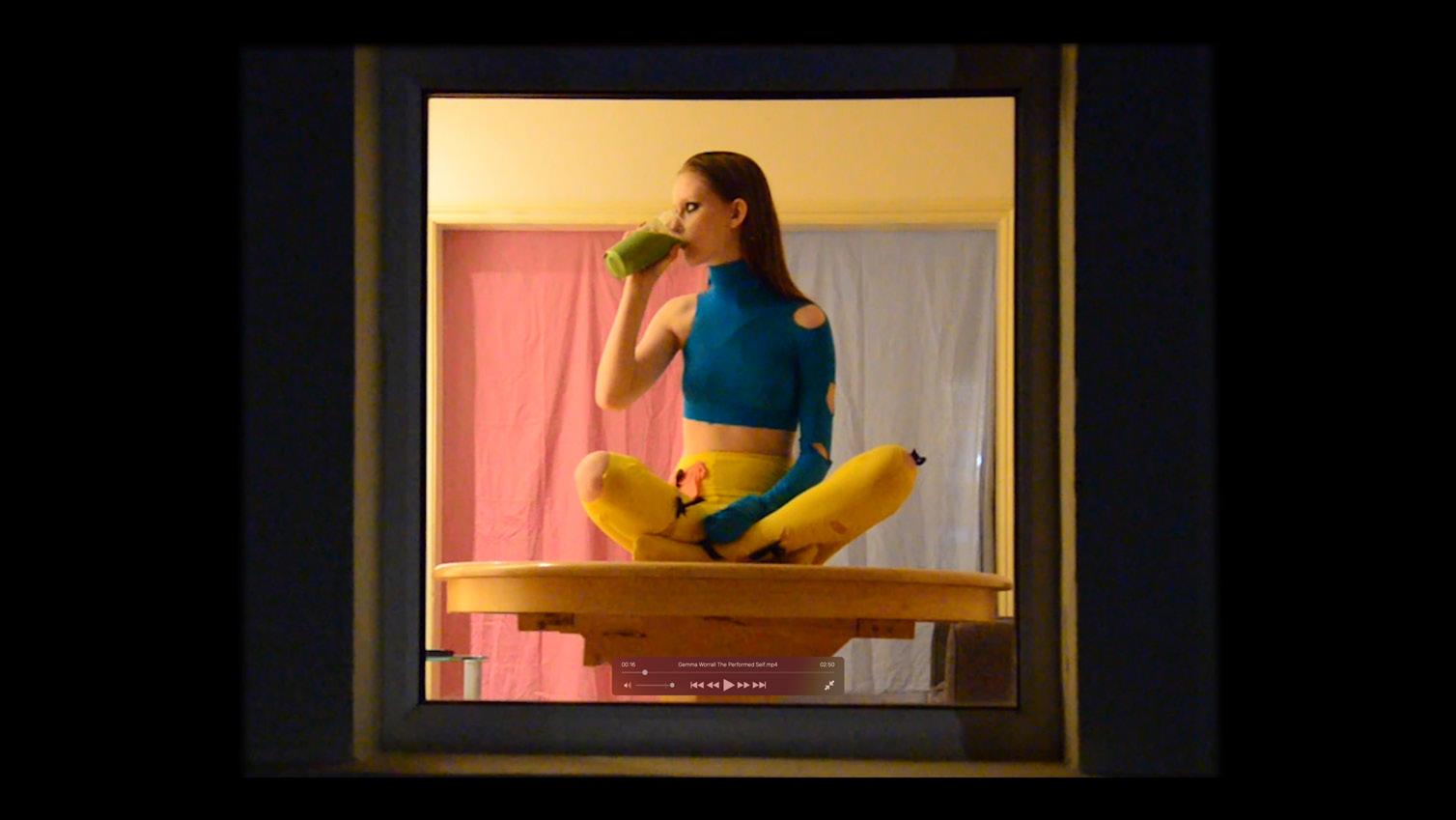






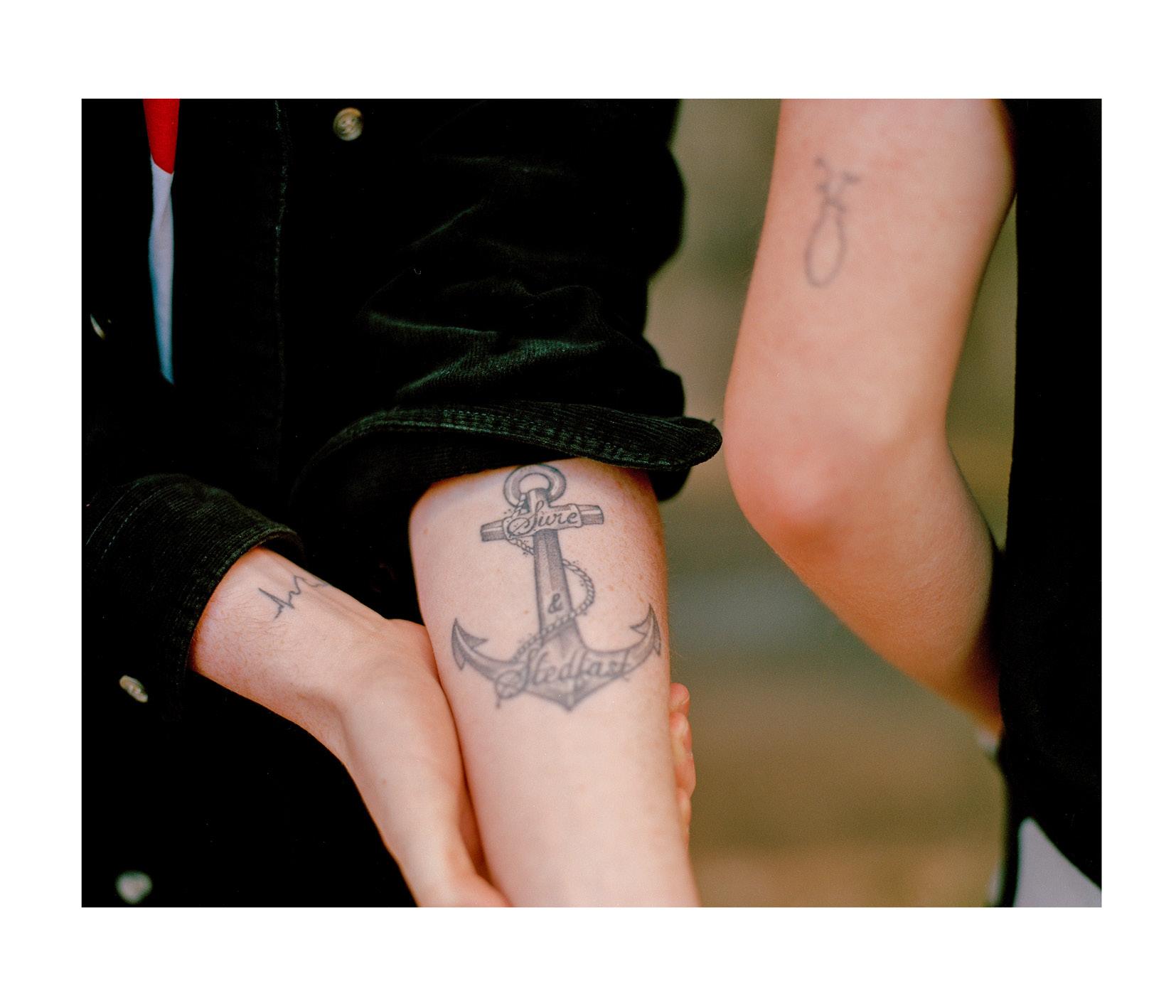
‘Council Us Out’ is a falsified fashion campaign designed deliberately to mislead the audience into perceiving an incorrect identification. Thereby, the advert seeks to purposely deceive the general public into recognising the documentary series as a physical record and response from University students who on numerous occasions have been disregarded by the government throughout the pandemic.
However, the initial purpose of the work aims to challenge today’s consumerism and fast fashion in response to the Rana Plaza, Bangladesh incident in April 201, which on numerous occasions was neglected by the management. Thereby, fabricating the reality and authenticity of the work, the series investigates human exploitation, child labour, modern slavery, capitalism to fast fashion which is at constant war with sustainability. Hence enabling my photographs to feature all second-hand clothing, instantly highlights the importance of recycling, reusing and reducing waste which contributes to improving our environment, economy and the community itself.
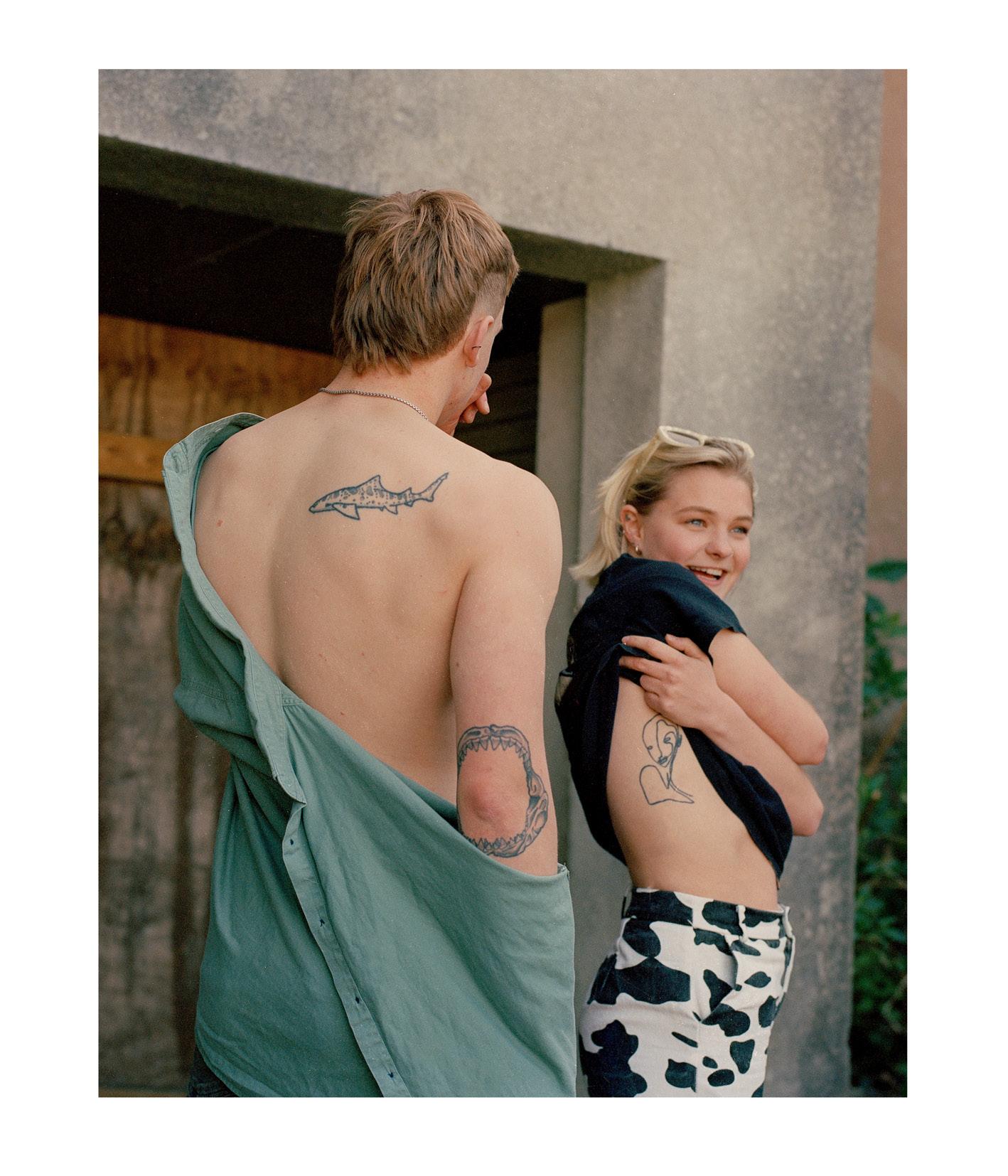




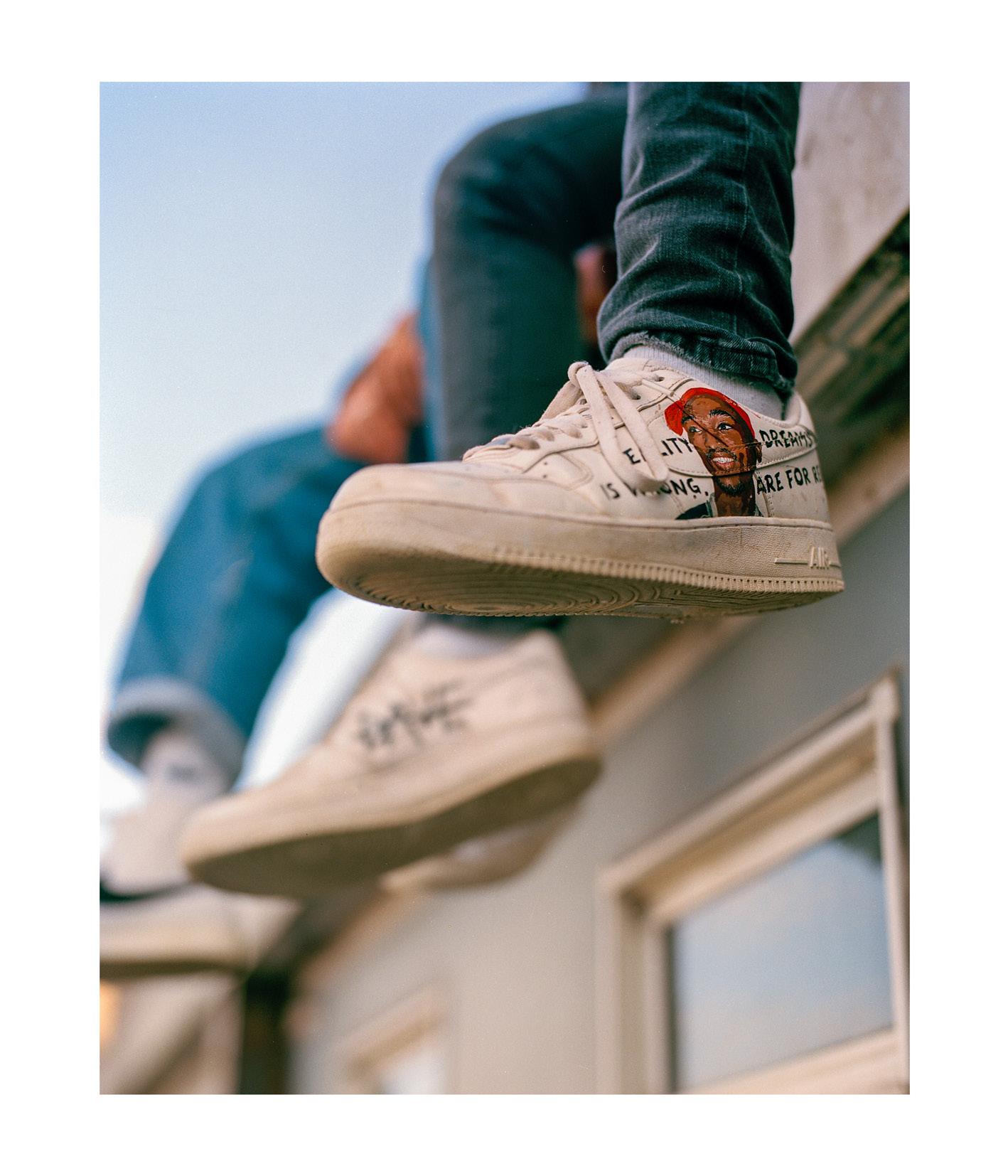

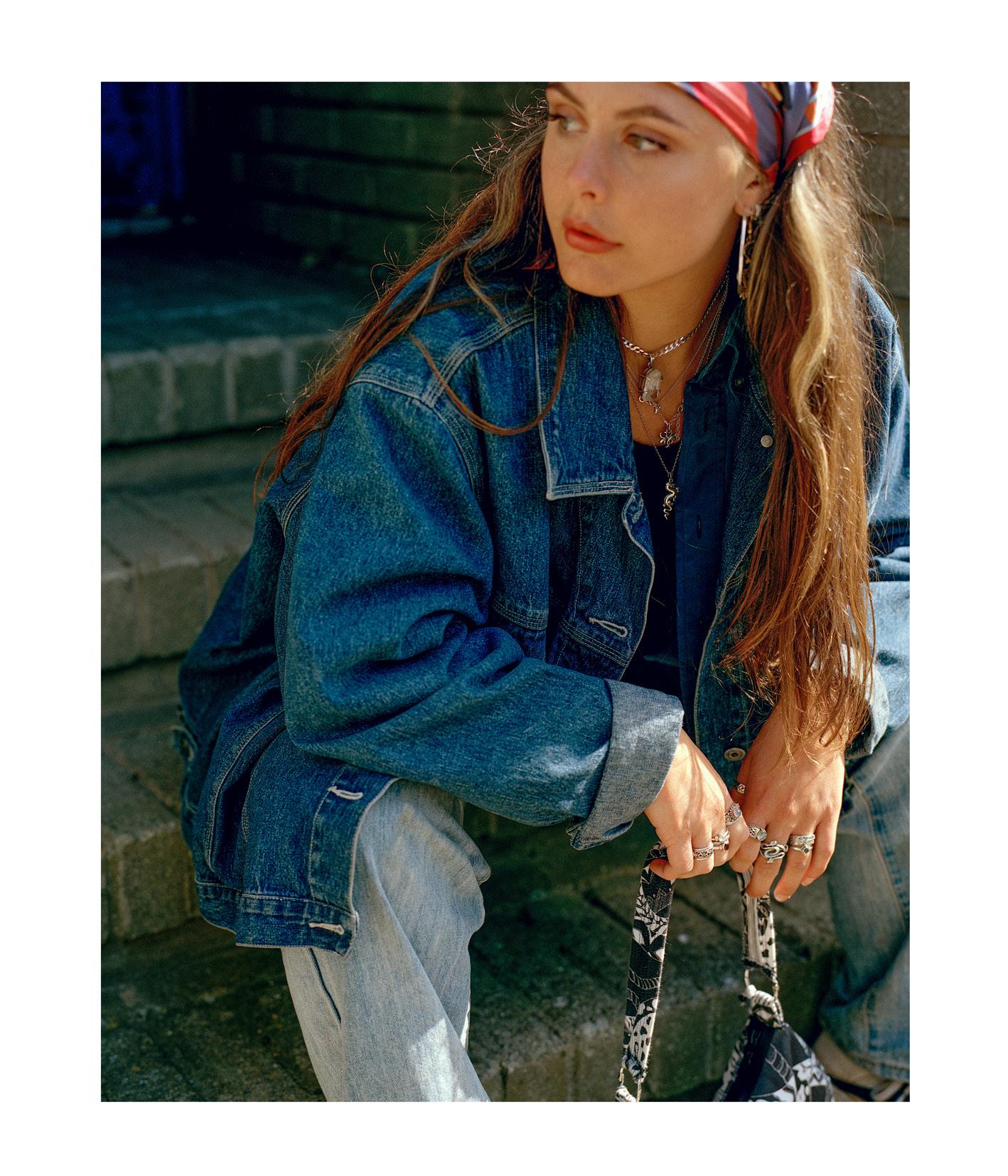
Evelina is a visual artist based currently in Lithuania. Her photography focuses on existentialism, female bodies in cold, rather wild nature landscapes showing the rawness of the subject’s character and the native land. Artist works across multiple platforms moving- images, 3d and stills. For a few years of pandemics concentrated on the cultural heritage of Lithuania and its rich religious legacy of paganism, Baltic cosmology and Christianity. How they were shaping the female image throughout the time and how it affects a modern Lithuanian woman. Besides that, she continues to work as a retoucher and a freelance photographer applying her art practice to the commercial field. Appearing in publications: Elle Russia, L’Officiel Lithuania.
Evie Milsom is British photographer with an interest in landscape, food and social stories. When she’s not out taking pictures, Evie is usually walking, outside or eating her way through restaurants. Her practice explores themes of people and place; often capturing human connections with the natural world. Celebrating the beauty of ethereal environments particularly when the human relationship with nature is so troubled. Flora and fauna is the host of adventure and happiness and we must treasure it.
Fran Rowse is passionate about female identities and the heritage of her home, Cornwall. Her work offers a window into the lives and dreams of women, capturing moments of surreal magic refashioned in the homes, streets, and the rich landscapes of the South West. Fran continues to build conversations about female ambition and empowerment - using fashion, styling and play to connect the young women and build a nurturing community. Since graduating Falmouth University with a First in Fashion Photography she has been the casting director for Marc Jacobs and Doc Martens - championing young faces from across Cornwall.
Victoria is a British nature photographer and expedition guide who divides her time between the UK, where she grew up in the countryside and the remote, often uninhabited regions of the world. This has fostered her deep connection with the environment and a passion for conservation. Her love of the environment is reflected in her practice which comments on the beauty and plight of the natural world, as she aims to engage audiences in ways which will encourage the preservation of nature. Through lock-down she began experimenting with alternative processes to bridge the gap between science and the public’s understanding of environmental issues, in particular ocean acidification. A graduate of Falmouth University she is also an Associate of the Royal Photographic Society.
Eve explains ‘having experienced trauma and the resultant negative impact on my mental health, my self-image and my relationship with my body are complicated. Anxiety and depression in my teens manifested in an array of difficult symptoms and conditions including eating disorders, body dysmorphia, dissociation and self-harm. I am in recovery but still carry the burden of past selves within myself and past bodies within my body - some I scarcely recognise, or have trouble accepting.’ In her practice Eve attempts to reconcile a sense of self with the body by revisiting times of trauma in an attempt to gain new insight that will ‘help to heal and grow’
Jake Varker is a photographer based in the South West of England. His photographic work focuses on his own surroundings and experiences. Concentrating on themes such as place and emotion, he aims to construct narrative imagery that supports his understanding of these matters.
Gemma has recently graduated with a First from BA(Hons) Fashion Photography at Falmouth University in Cornwall. Here collaboration, problem solving and the cross fertilisation of creative practices have helped to foster new ways of working. Gemma is planning to relocate to London in the near future to follow her filmmaking ambitions.
is a freelance photographer currently based in Falmouth, Cornwall - whose practice focuses on product, fashion to portraiture photography which is further elaborated through the incorporation of psychological studies and journalism in order to create a political statement.

